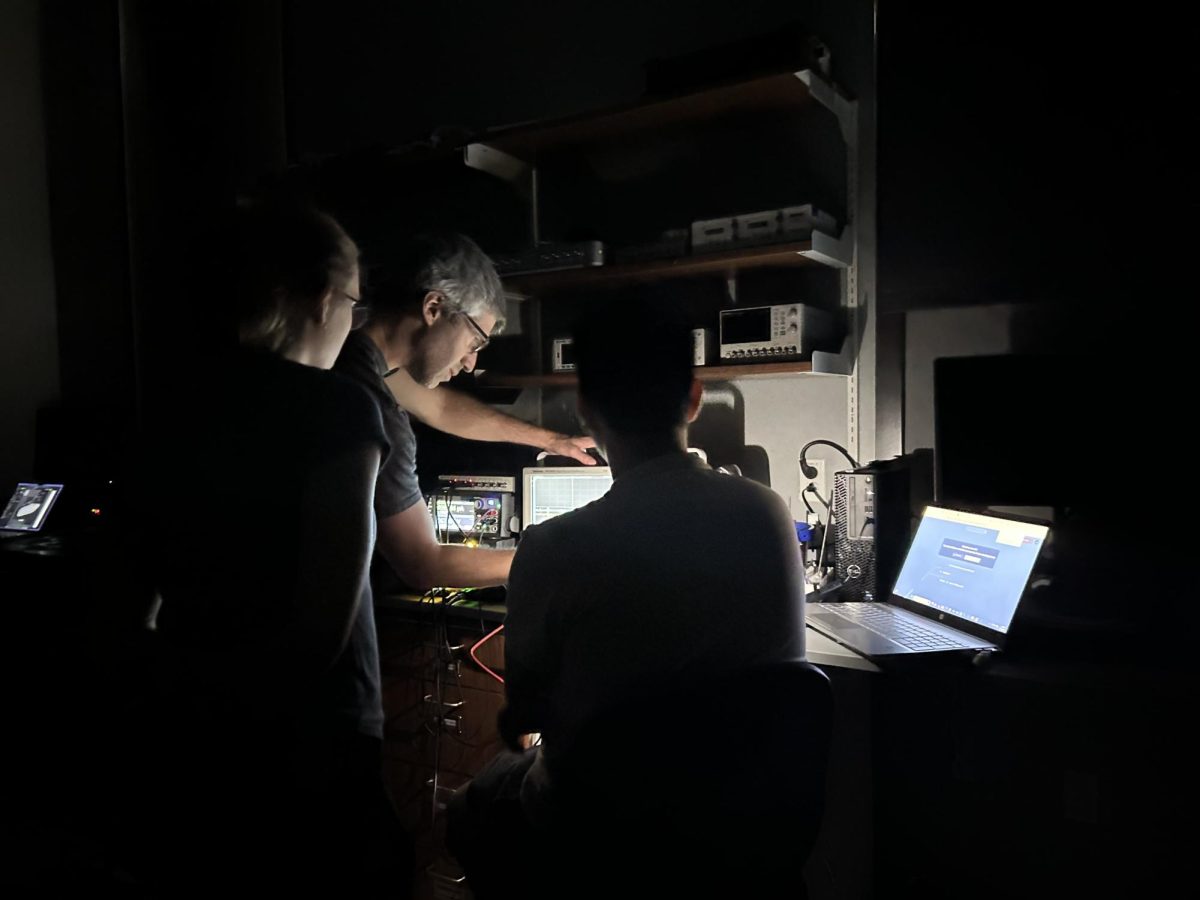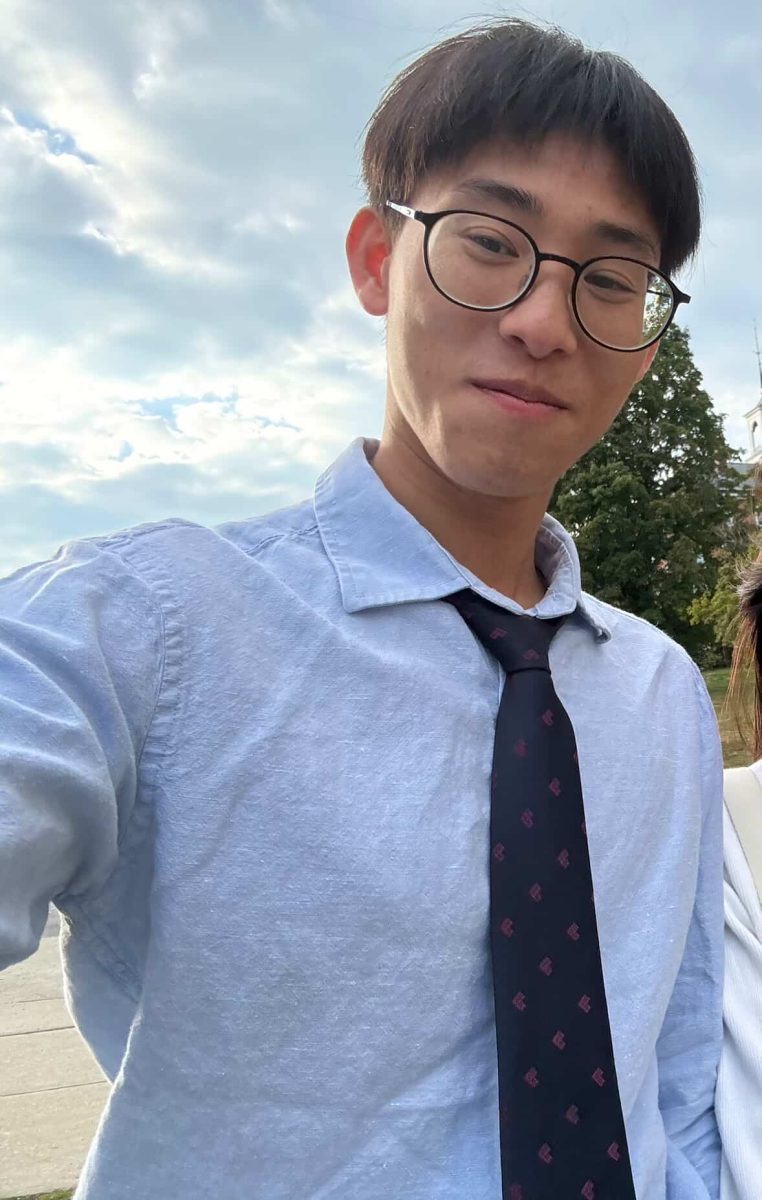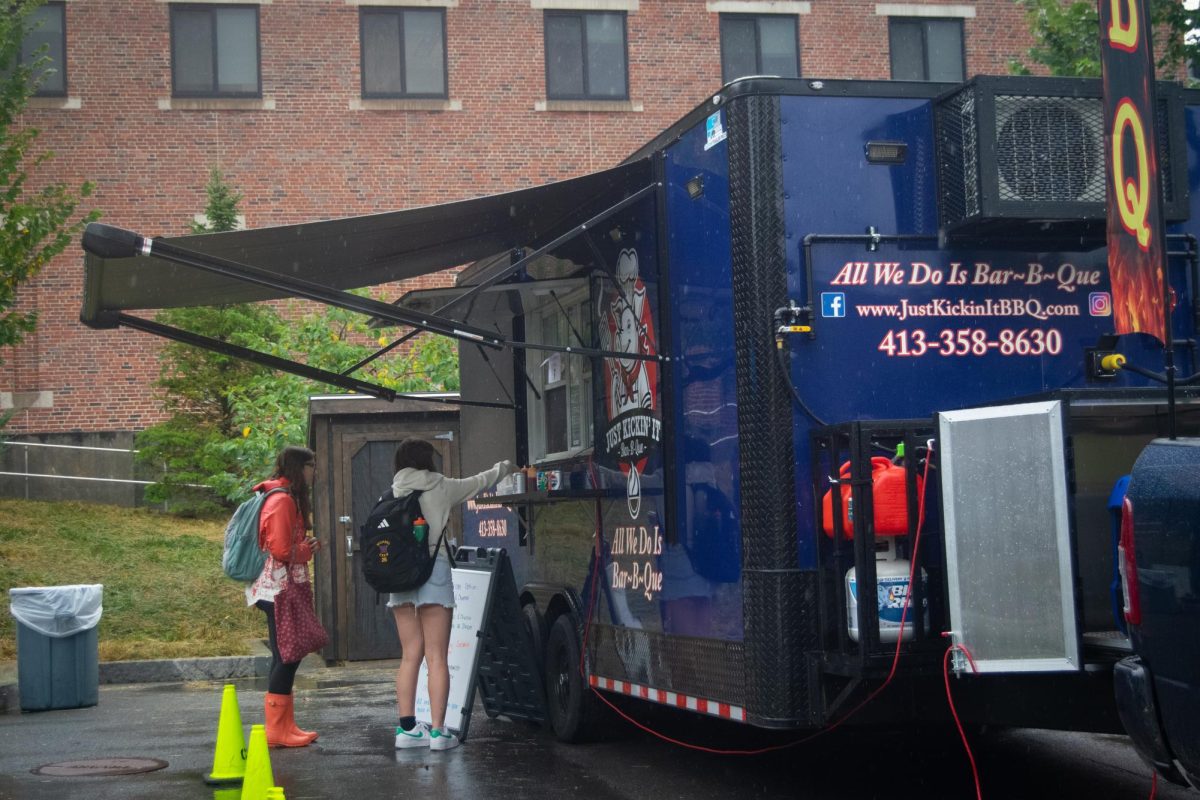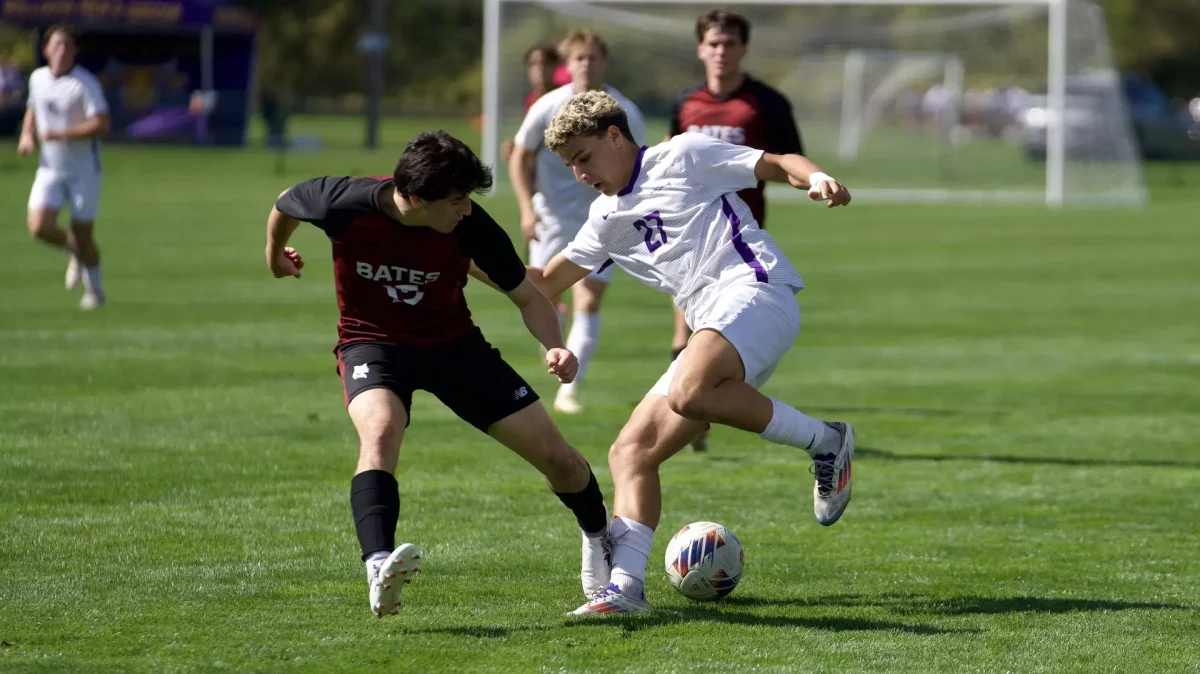For Abraham Paik ’25, church attendance has been a lifelong ritual. “Church has been a fixture of my life,” he told the Record. “I go to church every Sunday — for practically every Sunday that I can — and also on holidays.” When Paik arrived at the College as a first-year, he was unsure about how he might attend services here. “I looked into nearby churches and couldn’t really figure out much just from Google searches,” he said.
When students arrive at the College, some feel unmoored from the ways in which they practiced their faith at home, including attendance at houses of worship. While on-campus spiritual communities are part of many students’ religious lives at the College, some students seek spiritual community beyond the College’s campus.
Paik originally attended services via Zoom at his church in Cleveland, Ohio, but later heard from a friend about a group of College students who attend a nearby Protestant church. “I asked a friend of mine what they were doing, and they were like, ‘Oh, I go to this thing called Community Bible Church [CBC] just down the road on Sundays,’” he said. “I started doing that as a freshman and have done that ever since.”
Paik said that Protestant students at the College generally attend religious services off-campus, because the Williams Christian Fellowship (WCF), of which Paik is a board member, doesn’t host religious services on campus. Instead, it provides transportation to other churches in the area.
Every Sunday at just past 10 a.m., a CBC congregant transports roughly 15 to 20 students from the top of Mission Hill to CBC, often making multiple trips.
While CBC is located in Williamstown, other students have to travel further afield to find religious communities that match their faiths.
Miriam Silver ’27 grew up in a Mormon household and came to the College grappling with her faith.
“I was raised in a family where both parents were members of the Church of Latter-day Saints — a culture of going to church every Sunday,” she said. “It has always been a pretty big part of my identity, because there are a lot of stereotypes about being Mormon. As I got older, I watched my older siblings go through questioning their faith … and started to have my own periods of questioning.”
Silver said that, since coming to the College, she has felt the burden of being one of just two Mormons on campus. “A lot of people at Williams … don’t have a lot of experience with my church — to be one of the sole representatives of the Mormon faith to them is something that I carry,” she said. “I’ve certainly had some conversations with people like, ‘Oh, I’ve never met a Mormon before.’”
While Silver said she has found it meaningful to interact with other Christian groups in light of the absence of an official Mormon faith group on campus, it is important to her to attend services at a church that aligns with her own religious background. “The easiest way to find some faith connection is to tap into other Christian organizations,” she said. “But really feeling the spirit, really feeling at home and belonging, is something that I can’t quite get at any faith’s service other than my own.”
Going to services at a Mormon church hasn’t been easy for Silver, given the College’s rural location. “The hardest part is that the closest Mormon church is not close — it’s about 40 minutes away by car,” she said.
Like Paik, Silver received help from another member of the community in getting to church. Assistant Professor of Chemistry Bob Rawle has helped drive Silver and another Mormon student, Sean Morrissey ’24, to church on Sundays.
Even with help from Rawle, Silver has found it challenging at times to balance her academics and extracurriculars at the College with her commitment to her faith.
“In a place that is so rigorously academic, one of the hardest things in my deliberation about what to do with church is that it takes so much time since it’s so far away,” she said. “We have church from 10 a.m. to noon, and then we drive back and get home at 1 p.m. Instead of being a half-hour commitment, it’s four hours out of my day.”
Silver said that she feels the absence of church on Sundays when her obligations as a member of the women’s field hockey team preclude church attendance. “In my family, we didn’t play sports, hang out with friends, and didn’t watch certain types of movies on Sundays, in order to be able to have a spirit of religion and devotion to God throughout the entire day,” she said. “It’s a little harder to feel that when I’m in college and I have games on Sundays.”
In Silver’s tradition, the Sabbath is a time to be spent with family. “I’m used to spending the entire afternoon and evening with my family,” she said. “It has been a tricky adjustment to still feel like it’s the Sabbath.”
While some students found their off-campus religious communities out of a desire to attend services, others’ involvement has extended into leading them.
Rachel Schmidt ’25 started attending a synagogue in Bennington, Vt., midway through her junior year because it needed someone to lead services. The synagogue did not have a rabbi at the time; seeking a student at the College who could fill in, the congregation’s members reached out to Jewish Chaplain Seth Wax, who referred them to Schmidt.
For Schmidt, the synagogue in Bennington, which adheres to the reconstructionist movement of Judaism, represents a departure from the traditions she grew up with. “I definitely resonate most with the ‘conservadox’ vibe that I was raised with, but I’m really enjoying getting to see other forms of Jewish practice,” she said.
Schmidt said engagement with forms of Judaism other than those with which she was raised has been a significant part of her spiritual experience while at the College — both in Bennington and at the Williams College Jewish Association (WCJA).
“I know that if I had gone to a bigger school or a school that had a larger Jewish population, maybe there would have been a kosher dining hall or shomer shabbos [Sabbath-observant] housing and things like that,” she said. “But I also think that, if I had gone to a school that had more naturally fit the way that I was raised to be religious, I probably wouldn’t have explored other ways to practice Judaism in the way that I have, which I think has been really eye-opening for my own spirituality.”
Schmidt said that, at her synagogue in Bennington, she felt very welcome as a student at the College. “It’s a very Williams-adjacent community,” she said. “There are a lot of professors or former professors and people whose kids went to Williams, so people feel very positively about [the College] and its students.”
Paik, too, said that he sometimes helps lead services at CBC. “I’ve had the fortune of being able to help lead worship at CBC, through playing piano, playing guitar, and singing,” he said. “I find it to be a really meaningful way to engage with the faith beyond just showing up, sitting in the pew, and listening.”
While some students are able to attend services at off-campus places of worship, others have found it difficult to do so for reasons beyond distance and transportation.
For many Muslim students, the timing of Islamic services renders attendance at off-campus mosques impractical, Muslim Chaplain Sidra Mahmood wrote in an email to the Record. Therefore, most students attend services at the College.
These services differ from those at mosques, however, as they are led by students. “Usually, when you go to a mosque, there’s an Imam who says a bunch of things in Arabic, gives a sermon, and then he leads the prayer,” explained Nadim Stambuli ’25, a student who leads prayers at the College. “By following along, you don’t necessarily have to know what he’s saying in Arabic.”
At the College, congregants take a more active role, according to Stambuli. “It’s a really big responsibility to hold the Friday prayer,” he said. “The onus falls on the students to prepare the sermons, deliver them, and to learn the Arabic portion.”
Stambuli said he appreciates the enhanced sense of community that comes from praying with fellow students at the College. “Since you’re around all of your peers, it takes on an air of festivity, rather than of obligation, and you’re more primed to really get into the zone of prayer,” he said.
While most students attend services at the College, Stambuli said he knows of a couple who have gone to a mosque in Pittsfield.
While attending services outside of the College and, in some cases, beyond the Town can be difficult, it can be immensely meaningful for students who manage to make the logistics work. “[Church attendance] not being so easy and so routine has kind of made me realize that it means more to me than I thought — the Sundays that I haven’t been able to go to church, I really have missed it,” Silver said.












